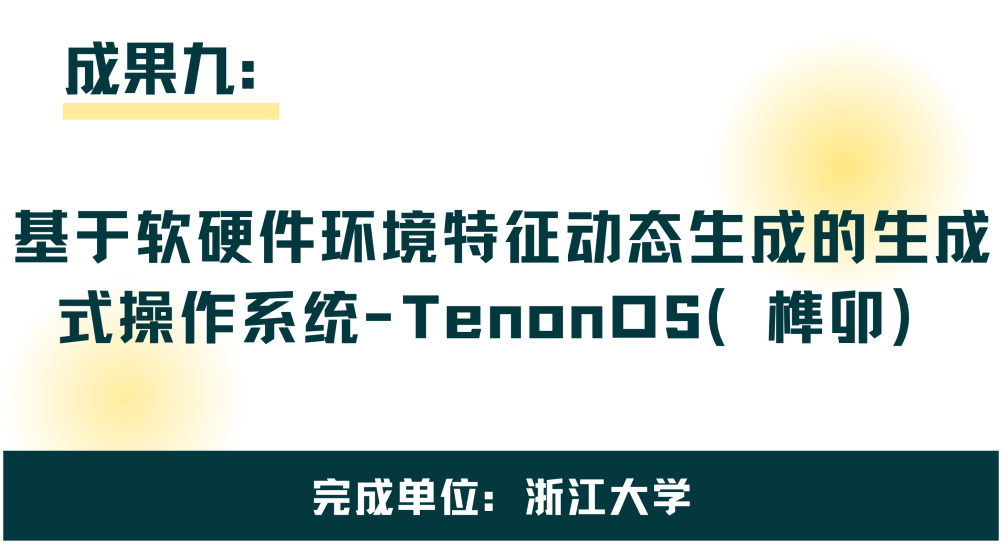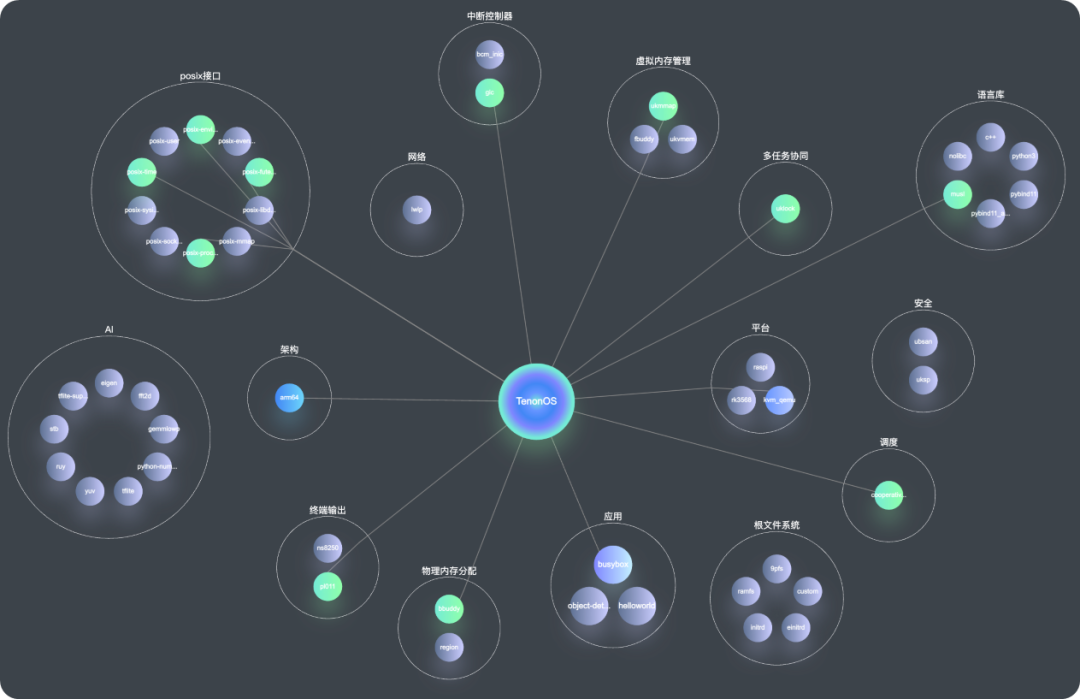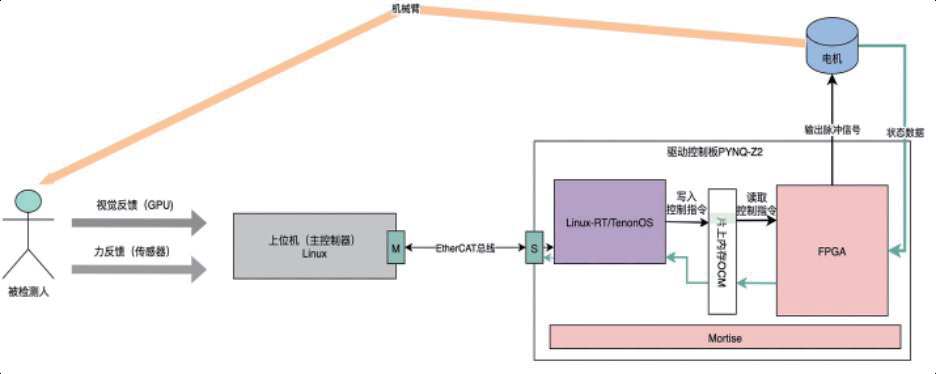
Debut Showcase
Top Ten Key Software Technology Achievements
On June 18, 2024, guided by the Ministry of Education’s Higher Education Department, the Demonstration Software College Alliance initiated the launch of a key software technology innovation platform, hosted by the Dishui Lake International Software College. During the launch ceremony, 10 universities showcased their key software technology achievements, presenting 10 technological results.
Today, this article will focus on promotingZhejiang University‘s research and development achievements.

Software Type
TYPE
Key Basic Software
Application Scenarios:
SCENARIOS
Widely used in aerospace, rail transportation, national defense and military, power energy, network communication, industrial equipment, medical devices, robotics, smart vehicles, smart homes, consumer electronics, and other embedded operating system application fields.
Achievement Introduction
INTRODUCTION
Addressing the bottleneck issues faced by operating systems in aerospace, rail transportation, and industrial equipment, and targeting the challenges of diverse hardware types, variable software characteristics, and uncertain operating environments faced by current embedded operating systems, a technology theory for dynamically generating target operating systems based on software and hardware environment features has been proposed – the theory of generative operating systems. Based on this theory, the TenonOS operating system has been developed. Compared to pre-developed embedded operating systems, TenonOS has significant advantages of being extremely lightweight, simple, and high-performance, with system memory usage reduced by 80%, scenario-oriented customization optimization efficiency improved by 5-8 times, and real-time performance enhancements of 6-10 times.
The theory of generative operating systems and the TenonOS software have been widely demonstrated in aerospace equipment, medical robotics, rail transportation, and Shenwei intelligent acceleration chips, completing the deployment of tens of thousands of devices, achieving domestic substitution and intelligent upgrades of operating systems in multiple fields.
Software Screenshot
SCREENSHOT

Illustration of the TenonOS generation process
Technical Advantages
ADVANTAGE
Advantage 1: A dynamic generation method for operating systems based on microkernel, supporting real-time and efficient generation of target operating systems suitable for different scenario requirements in various software and hardware environments, with the generated operating systems exhibiting extreme lightness, simplicity, and high performance.
Advantage 2: Intelligent combination and flexible replacement technology of operating system micro-library modules to meet the functional, performance, and security requirements of operating systems in different operating environments, achieving adaptive optimization during the operation of the operating system.
Advantage 3: An ecological sharing mechanism based on the reuse of operating system micro-libraries, enabling cross-enterprise co-construction and sharing of operating system capabilities, facilitating a leapfrog development of the operating system ecosystem.
Supporting Materials
MATERIALS
Multiple original technological breakthroughs have been achieved in areas such as the architecture of generative operating systems, operating system runtime environment perception and load classification methods, adaptive optimization strategies for operating systems, dynamic construction and runtime update methods for generative operating systems, and software-defined mechanisms for security isolation strategies of generative operating systems, with several academic papers published in top conferences/journals and multiple invention patents applied for.
Demonstration Application Status
APPLICATION
Case 1: The TenonOS running on a domestic Shenwei model intelligent processor. The adaptation efficiency of TenonOS to different models of acceleration cards has improved by 5 times, and customization optimization efficiency has improved by 2.3 times, with the comprehensive computing efficiency of the processor exceeding that of the NVIDIA V100 chip.

Architecture diagram of the TenonOS application scenario on a Shenwei model intelligent processor
Case 2: The TenonOS running on a precision medical robot. The processing performance has improved by 10 times, with control precision reaching the nanosecond level, and the dynamically generated TenonOS has reduced resource usage by nearly 100 times.

Illustration of the TenonOS application on a precision medical robot
Main Responsible Persons and Members
MEMBERS
Chen Zuoning: Academician of the Chinese Academy of Engineering, Chief Engineer of the National Parallel Computing Engineering Technology Research Center, long engaged in research on computer architecture and system software, and has led the development of multiple domestic computer system software.
Yin Jianwei: Professor at Zhejiang University, recipient of the National Outstanding Youth Fund, member of the Ministry of Industry and Information Technology’s Industrial Internet Strategic Advisory Committee, and Vice Chairman of the Expert Committee of the Service-oriented Manufacturing Alliance, long engaged in research on service computing systems, distributed systems, and intelligent system software.
Zhao Xinkui: Researcher of the Hundred Talents Program at Zhejiang University, doctoral supervisor, Deputy Director of the Key Laboratory of Intelligent Service Technology in Zhejiang Province, long engaged in research on intelligent operating systems and cloud-native system software, previously served as the director of Huawei’s cloud container field, leading the development of multiple cloud-native system software and open-source projects.
Zhang Lufei: Senior Engineer at the National Key Laboratory of Mathematical Engineering and Advanced Computing, long engaged in research on artificial intelligence and operating systems, and has received provincial and ministerial-level science and technology progress awards.

Contact Person for Achievements
Name: Zhao Xinkui
Email: [email protected]
Phone: 15168385339


Editor | Wan Ningjing
Reviewer | Zhu Dan